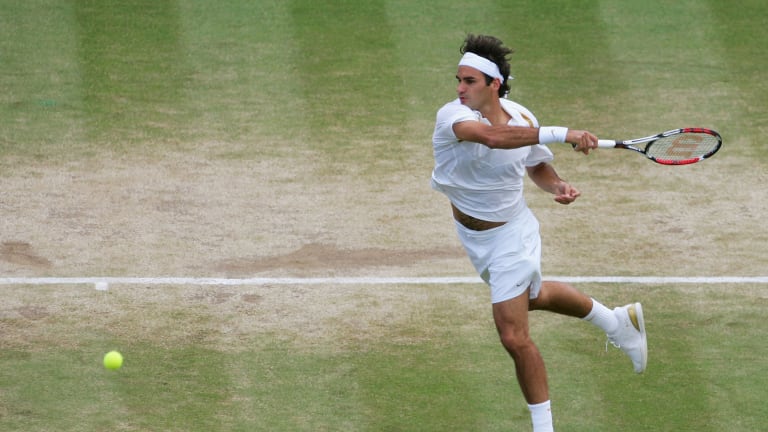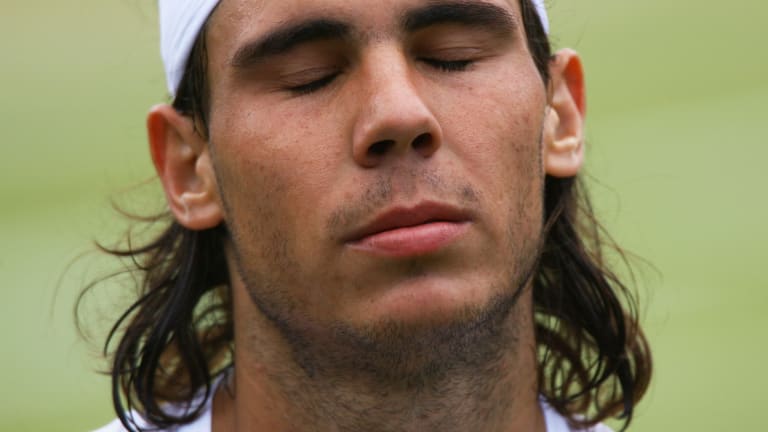GOAT Race
GOAT Race: 10 moments when the Big 3's Grand Slam chase hung in the balance
By Jun 23, 2023GOAT Race
Moment 10: In the War of 13-12, Novak Djokovic closes the decade with one last epic escape
By Jul 02, 2023GOAT Race
Moment 9: With one forehand, Djokovic ends Roger and Rafa's Indian Summer
By Jul 01, 2023GOAT Race
Moment 8: Roger Federer frees his backhand Down Under—and starts a renaissance at 35
By Jun 30, 2023GOAT Race
Moment 7: Djokovic stumbles into net, opening door for Nadal to seize Roland Garros classic
By Jun 29, 2023GOAT Race
Moment 6: At 1:37 a.m., Djokovic topples Nadal in grandiose, grunt-filled Australian Open epic
By Jun 28, 2023GOAT Race
Moment 5: Novak Djokovic hits the all-or-nothing forehand return heard 'round the world
By Jun 27, 2023GOAT Race
Moment 4: Roger Federer stops a 41-match win streak, and wags a finger, at Roland Garros
By Jun 26, 2023GOAT Race
Moment 3: Djokovic “closes his eyes” and hits two huge, match-saving forehands against Federer at 2010 US Open
By Jun 25, 2023GOAT Race
Moment 2: Federer’s four-hour comeback comes up one break point short to Nadal in 2008 Wimbledon final
By Jun 24, 2023GOAT Race
GOAT Race: 10 moments when the Big 3's Grand Slam chase hung in the balance
We begin our countdown with Roger Federer's fifth-set escape of Rafael Nadal at Wimbledon, 16 years ago.
Published Jun 23, 2023
Advertising
Advertising

Federer was at his finest in the fifth set of this final.
© 2007 Getty Images
Advertising

In the fifth set, Nadal twice got to 15-40—but got no closer.
© 2007 Getty Images